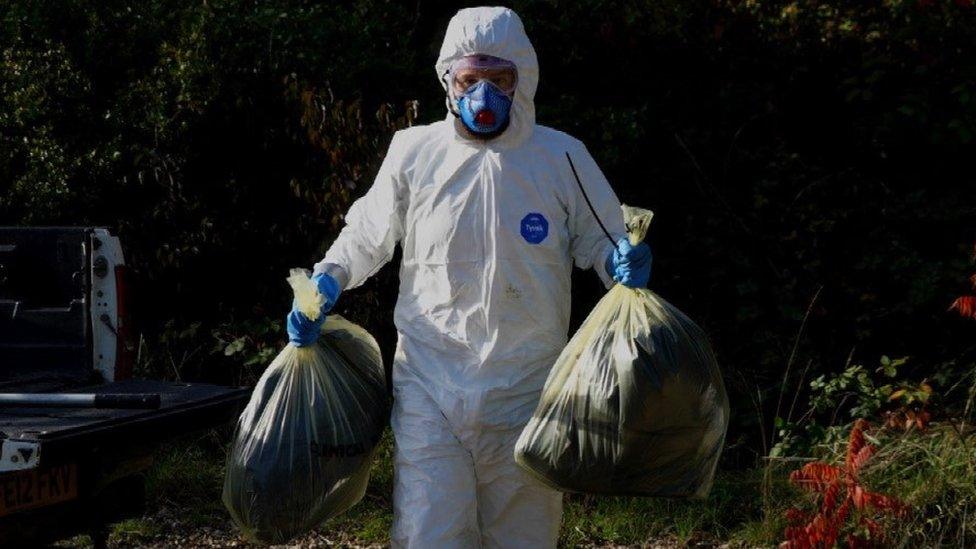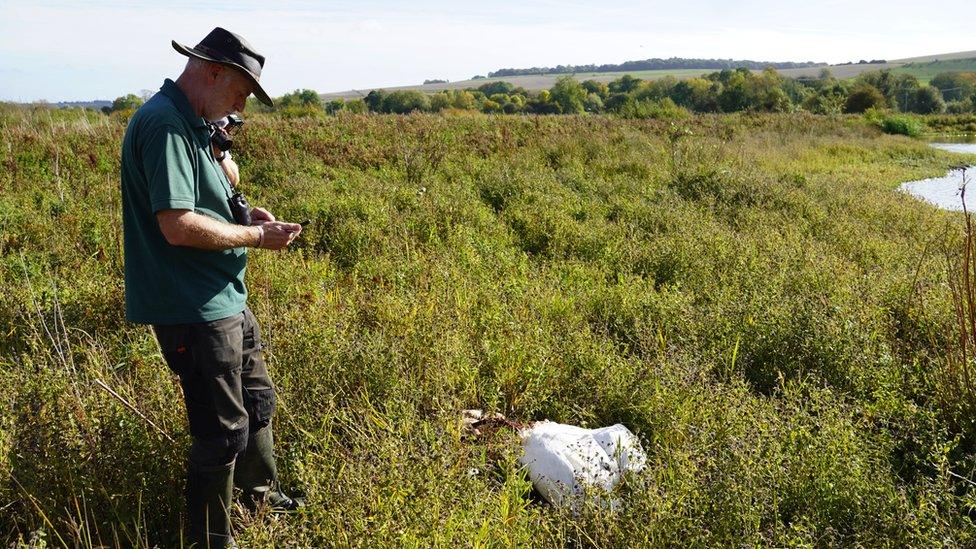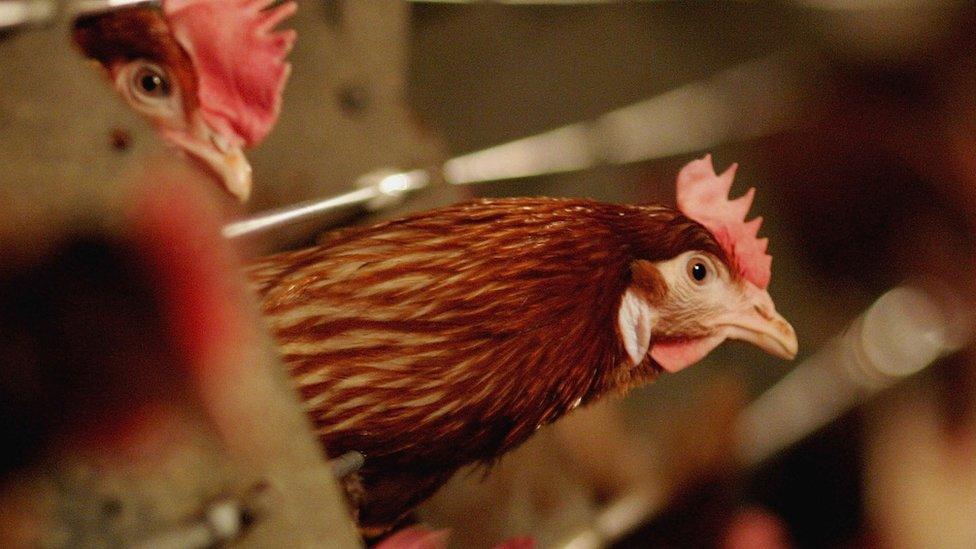Anti-Bird flu measures in place across Great Britain
- Published

A ranger at the Wiltshire Wildlife Trust's Langford Lake reserve removes the carcasses of two dead swans, thought to be infected with bird flu
Bird keepers in England, Scotland and Wales must implement strict biosecurity measures to stop bird flu spreading, the government has announced.
The Department for Environment, Food and Rural Affairs introduced the measure amid the country's largest ever bird flu outbreak.
It follows regional indoor housing measures introduced last week in Norfolk, Suffolk and parts of Essex.
The risk to human health from the virus remains very low, the government said.
The chief veterinary officers from England, Scotland and Wales declared an Avian Influenza Prevention Zone (AIPZ) across Great Britain to prevent the disease spreading amongst poultry and captive birds.
The move followed an increase in the number of detections of avian influenza in wild birds and on commercial premises.
Across the United Kingdom, 190 cases have been confirmed since late October 2021, with over 30 of these confirmed since the beginning of this month.
"We've never had to do this before, we've never had this level of environmental infection going on before that's posing such a risk," Prof Christine Middlemiss, the UK's chief veterinary officer, told the BBC.
The UK Health Security Agency (UKHSA) advised that the risk to public health from the virus was very low and the Food Standards Agency advised that avian influenzas posed a very low food safety risk for consumers. It said properly cooked poultry and poultry products, including eggs, are safe to eat.
The government stopped short of asking all bird owners to bring their animals inside, a measure already in place in the east of England.
It said that keepers with more than 500 birds would need to restrict access for non-essential people on their sites. Workers would need to change clothing and footwear before entering bird enclosures and site vehicles would need to be cleaned and disinfected regularly to limit the risk of the disease spreading.
Avian influenza spreads naturally in wild birds. These can spread it to poultry and other captive birds when they migrate.
"Bird keepers have faced the largest ever outbreak of avian flu this year and with winter brings an even more increased risk to flocks as migratory birds return to the United Kingdom," the chief veterinary officers of England, Scotland and Wales said in a joint statement.
"Scrupulous biosecurity and hygiene measures is the best form of defence."

Dave Turner, estates manager with the Wiltshire Wildlife Trust, examines the carcass of a dead swan
The Wiltshire Wildlife Trust has found 20 dead wild birds at its Langford Lake reserve, most of them Canada geese. They found two more today - this time swans.
Two of the carcasses have been taken away by a Defra team and are currently being tested for suspected avian flu.
Dave Turner, estates manager at the Wiltshire Wildlife Trust, said he had stopped all fishing and river access at the reserve, as well as educational activities including pond-dipping. The trust was asking the public to stick to footpaths and not to walk through bird faeces.
"It's very hard with wild populations. You can't control where they come from," he said. "We have large numbers of Canada geese and lapwings and more, and you don't know what could be potentially coming and going from site."
He asked members of the public to "be vigilant" and to record any sightings by taking a photo and emailing it in with a location.
"From a wildlife perspective this is the worst we've ever seen," he said. "It could be a very long winter unfortunately."
Related topics
- Published12 October 2022
